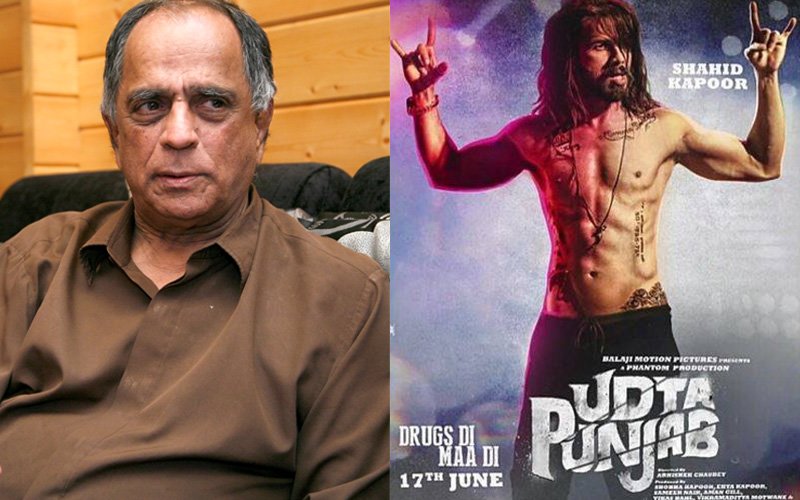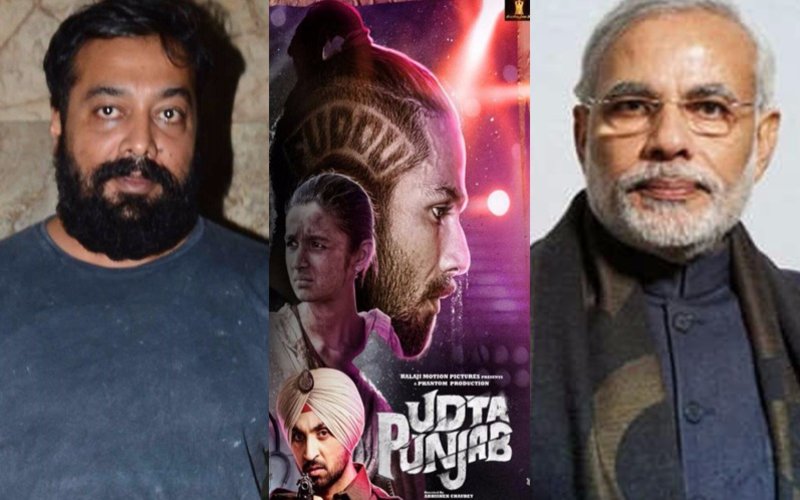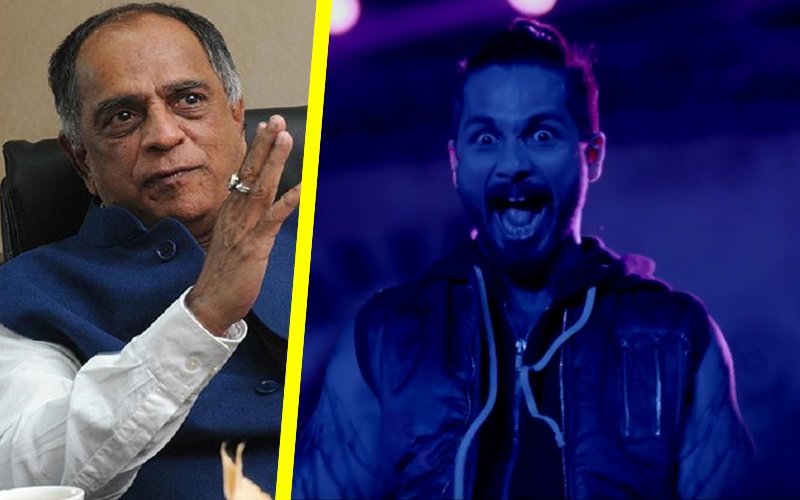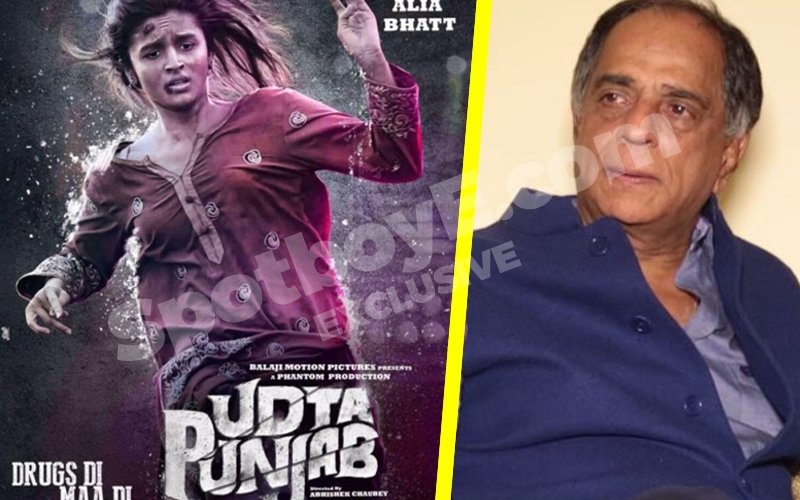Team Udta Punjab rejoices, but are they really out of the woods?
Historic judgement of the film hailed but CBFC might go to the Supreme Court tomorrow
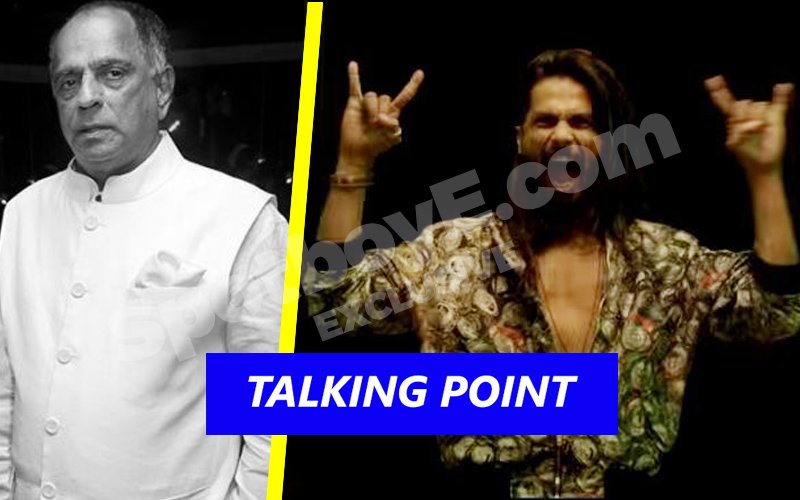
A few hours ago, SpotboyE told you about
the film industry’s unprecedented win. The Bombay High Court has slammed the
Central Board of Film Certification (CBFC) for demanding as many as 89 cuts in
Udta Punjab, including all references to ‘Punjab’ in the film. Announcing its
verdict in favour of the Abhishek Chaubey-directorial, the court has directed
the Censor Board to pass the film with ‘A’ certificate, disclaimers and just
one cut -- the scene where rockstar Tommy Singh (Shahid Kapoor) is shown
urinating on the crowd will be removed. The HC has asked CBFC to do the needful
in 2 days.
Team Udta Punjab is naturally happy. But we
will have to wait and watch. Tomorrow is the key. Buzz is the CBFC might appeal
to the Supreme Court for a stay order on the film.
However, according to filmmaker Vikram
Bhatt, today’s day will go down in film history as the industry’s Independence
Day. “Sincerely, it is the victory of the people, the industry and the
constitution. It became a movement and Udta Punjab became the face. The fight
had gone beyond the film in question, Pahlaj Nihalani and the sanskari CBFC. It
was about whether we can speak our mind freely and whether the constitution is
still alive. We have our answer today. We’re not a fascist state.”
“I don’t know what will happen to Pahlaj
after this. A majority of the films going straight to the Tribunal after being
suggested cuts hasn’t made a difference to him or the board or the ministry. My
question is: Is the government really silently watching Pahlaj go wild or is he
being controlled by someone? I want to know which of this is really true,” asks
Vikram, who believes in narrating stories in a bold way.
Nandini Sardesai, who has been on the
CBFC’s Revising Committee for years, welcomes the decision of the High Court.
She believes that the decision puts a question mark on the board chief’s
credibility to hold office. She, without mincing words, points out that the
CBFC chief would often preside over the Revising Committee, which is out of his
line of duty. “Pahlaj deserves what happened for he was the one flouting the most
number of rules and guidelines. If a filmmaker was sensible enough to ask for
‘A’ certificate, why make cuts to the film? Aren’t the adults in India discerning
enough? I think this is the best time to put the Shyam Benegal Committee’s
suggestions to work. Certify films, stop censoring them. And it’s also time to
change the committee members, since a large number of them have questionable
credentials,” she reveals.
The industry and its allied forces only see
the High Court decision as a relief. What, however, is unclear is whether this
episode can set the right precedent. Would the move made by Anurag Kashyap, the
Phantom Boys and Ekta Kapoor to approach the High Court set an example for
other filmmakers who are still fighting to get their films into cinema halls
(Vivek Agnihotri for instance, for Buddha In A Traffic Jam)? Will every
filmmaker now look towards the judiciary for help against a difficult-to-please
and difficult-to-understand censor board? Or will this move force the board to
look within?
“The board needs to look within. But every
filmmaker shouldn’t run to the judiciary either. As a former chairperson, I
think that whenever a distressed filmmaker has approached the court, the court
has served justice to him or her. It’s a positive move this time too. I was
sure this would happen eventually. There’s no need for anyone to fiddle with
creativity really,” says the board’s former chairperson Leela Samson, who also
fielded plenty of controversies during her tenure too. When asked how she’d
have dealt with a situation like Udta Punjab, she said, “It’s too hypothetical
for me. How do we know how much pressure Pahlaj is under? And we don’t know who
is pressurising whom here. So I can’t answer that!”
Udta Punjab’s win is nonetheless being
relished by the industry as a whole because for years, the board has acted up
and banned movies pan India for numerous reasons. Neel Akasher Neechey was banned in 1959 for
two months for overt political overtones. Garam Hawa of 1973 was held up by the
Censor Board for eight months because the film depicted a Muslim family’s
trials during the partition. Even mainstream cinema was not spared. Gulzar’s
Aandhi was banned during the emergency by Indira Gandhi, and was released two
years later in 1977 after the Janata Party came into power.
Even family dramas were not spared. Pati
Parmeshwar, in 1987, was
denied a rating by the Censor Board for showing a woman in ignoble servility of
her husband. The Bombay High Court intervened and cleared it for release. Anurag
Kashyap’s Paanch has remained unreleased till date for glorifying drugs, sex
and violence. Black Friday’s release was blocked till the verdict of the
lawsuit by the Bombay High Court on the petition of the under-trials. It
released two years after its original date of release.
These are only a few examples of the CBFC’s
high-handedness while handing a filmmaker’s labour of love. There have been
hundreds of occasions when filmmakers like Kamal Haasan have been forced to
take cuts in their films and ONLY then release them for public display. Vishwaroopam
for example. Ironically, filmmaker Chandrapakash Dwivedi, who is an active part
of the CBFC, has been denied a certificate for Mohalla Assi that deals with the
commercialisation of the pilgrimage city Varanasi.
“It’s time that a handful of people are not
given the authority to decline someone’s hard work from being released for
public consumption. All the concerned authorities have to wake up and play
their parts correctly for filmmakers to not feel stifled,” says veteran writer
Salim Khan. “Today, the film industry has jointly taken a strong step and it
has worked for them. They need to stand united like this for everyone alike,”
he adds.
Atul Kasbekar, who produced one of the
year’s finest biopics, Neerja, echoes Salim Khan’s opinion. “I fail to
understand why we continue to have massive impasse on some issues where the
solution is obvious. It’s the CERTIFICATION board. Shouldn’t they have just
seen the film, certified it and let it pass? That’s simpler, isn’t it? The
issue wouldn’t have snowballed had they just been doing their job,” he adds.
The Indian Film And Television Directors’
Association came forth last week and in wide numbers stood by Anurag Kashyap
and his coterie in their fight against CBFC’s rigidity and undue demands.
Ashwini Chaudhary, the general secretary of the association, points out that
this matter was only waiting for a trigger. The board, he says, had begun to
suffocate the filmmakers with its moral policing. “We’re in the business of
creativity. It had become the need of the hour to wage a cohesive war against
the highhandedness of individuals who think they are the board. We backed
Kashyap as a united force and the result is for all to see. We have resolved to
note take things lying down now on,” he says.
According to producer Vikram Malhotra, it’s
a win-win move for everyone, barring the board. The audience he believes gets
the right to decide whether they want to see a film on a certain subject dished
out in a certain manner. The producer-director gets the space to narrate a
story the way he or she wants. And the board only gets to certify the content,
and not censor it. Malhotra believes the movement was in the offing.
“This movement was not sudden. Filmmakers
had been mobilising themselves against the board for a few years now. In the
last one year alone, many films have gone to the Tribunal because their
filmmakers have felt that they have been discriminated against. Hansal Mehta,
who gave a national award winning film like Shahid, also had to fight for
Aligarh, though he didn’t have the support around him then that Kashyap has
today. It’s a case of timing. Fortunate or unfortunate, but by now, the entire
industry was up in arms and the movement had taken momentum,” says Vikram.
Producer Ashwini Yardi can only see a ray
of hope in the entire episode that transpired over the last few days. “Now that
the industry has learnt to stand united and seen the results of standing united
against an issue, it should stay that way. Stand up together against a wrong
and it will have to be corrected,” she has the last word.
Image Source: BalajiMotionPictures, Indiaforum, twitter/AshviniYardi/vikramix/TweetsNowIndia/atulkasbekar & Manav Manglani
